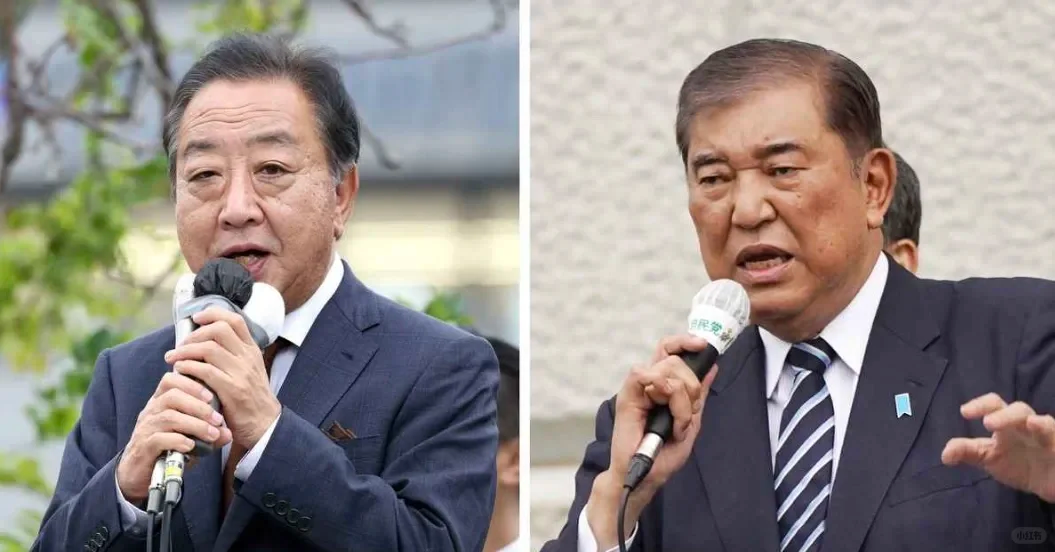How Japanese Election Change The Assets?
Japan's political scene has been shaken by a sudden earthquake, with the ruling Liberal Democratic Party (LDP) losing its governing position for the first time since 2009, and Shigeru Ishiba's dream of becoming prime minister being snuffed out just a month ago.Although he has not been in power for a long time, Prime Minister Ishiba Shigeru's "black money" scandal is now in full swing, and the news about the irregular use of the LDP's political funds has greatly reduced the LDP government's support in the polls.
Last weekend, the 50th House of Representatives election, in the 465 seats, the Liberal Democratic Party 191 seats, the Komeito party 24 seats (the two parties formed a ruling coalition of 215 seats, not reached a majority of 233 seats); the Constitutional Democratic Party 148 seats, the Japan Restoration Association 38 seats, the National Democratic Party 28 seats.
By this "tightening" the prime minister's position shaken by the impact of yesterday's surge in Japanese stocks, while the yen's good days seem to be over, USDJPY all the way up to 153.8. $iShares MSCI Japan ETF(EWJ)$ $Japanese Yen - Dec 2024(JPY2412)$ $OSE Mini Nikkei 225 - main 2412(JMImain)$
The possibility of the prime minister's position
On November 11, Japan will convene a special Diet and hold a Prime Ministerial Nomination Vote in which the Prime Minister will be decided.
In the first round, there was no majority of candidates, and the two candidates with the most votes went into a run-off.The voting situation is still unclear, with the possibility of the LDP and Komeito working with other parties to remain in power, but conversely the possibility of other opposition parties joining together to govern also remains.
The National Democratic Party (NDP) has made it clear that it will not join the LDP's ruling coalition, and the Constitutional Democratic Party (CDP) has said that it will be more active in soliciting support for Yoshihiko Noda from other opposition parties.Assuming that the LDP does not change its party head, the following three scenarios are possible for the prime ministerial election:
The LDP Civic Party does not pull in any new allies, but Shigeru Ishiba gets the prime minister as well.Policy will not be subject to more constraints, positive yen, negative Japanese stocks.However, in addition, due to the existence of the cabinet system of the House of Representatives "no confidence" mechanism, in the ruling party but half of the background, no confidence in the case is more likely to be passed, no confidence in the case of the passage of the Prime Minister only to choose to self-resignation or the dissolution of the House of Representatives, the political uncertainty has increased.
LDP + Komeito + Nippon Restoration Society = New Coalition.Although the expanded version of the coalition can protect Shigeru Ishiba's prime ministership, the subsequent policy implementation of the LDP will also be subject to more constraints from the allies, especially in terms of fiscal policy and monetary policy tightening.This scenario will be more limited than the first positive for the yen and negative for Japanese stocks.
Constitutional Democratic Party to pull the support of allies, Noda Yoshihiko took the position of prime minister in one fell swoop.This will mean that the future of Japan's monetary policy and fiscal policy will continue to loose state, favorable Japanese stocks, negative yen.
Policy changes and impact
Fiscal policy: Japan's fiscal spending or marginal expansion, the Japan Restoration Association and the National Democratic Party both hold a positive attitude on finance, the LDP and the Komeito party in seeking cooperation at the same time the probability of the need to tilt the policy to the relevant parties, so within 2025 there is the possibility of tax cuts, subsidies and other policies on the margin in Japan.
Inflation : inflationary pressures or marginal increase, in the context of active fiscal policy, Japan's real wages may be positive for a long time, which will help to push up demand-pull inflationary pressures, 2025 "Chun Doo" or continue to make significant wage increases.
Monetary policy: or dovish, in the context of Japan's political landscape of instability, our central bank's monetary policy normalization threshold or marginally higher.While the depreciation of the yen exchange rate will be an incentive for the BOJ to raise rates at the margin.However, the impact of Trump's rise to power will also be a factor that the BOJ will watch the economy, trade, and inflation cautiously. $US10Y(US10Y.BOND)$ $.SPX(.SPX)$ $SPDR S&P 500 ETF Trust(SPY)$ $.DJI(.DJI)$
The Japanese policy rate is expected to be around 0.75~1.00% or late 2025.
Yen exchange rate: more or yen depreciation pressure in the short term. In the context of Japan's political instability, Japan's monetary policy marginal dovish, the U.S. Trump deal intensified, the yen may remain on the weak side, or even the possibility of further depreciation, while reducing the possibility of the dollar's depreciation, so further interest rate arbitrage transactions can continue to be carried out.
Japanese bond interest rates: due to the marginal dovish monetary policy, Japan's policy rates in the short term or difficult to significantly increase, but by the rise in inflation in Japan, the United States, the impact of the long end of the interest rates we believe that Japan's long end of the interest rates or marginal upward.
Disclaimer: Investing carries risk. This is not financial advice. The above content should not be regarded as an offer, recommendation, or solicitation on acquiring or disposing of any financial products, any associated discussions, comments, or posts by author or other users should not be considered as such either. It is solely for general information purpose only, which does not consider your own investment objectives, financial situations or needs. TTM assumes no responsibility or warranty for the accuracy and completeness of the information, investors should do their own research and may seek professional advice before investing.


